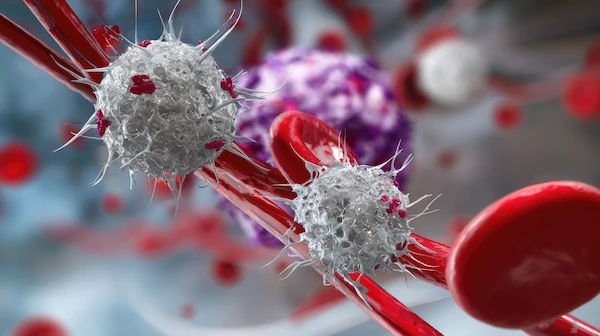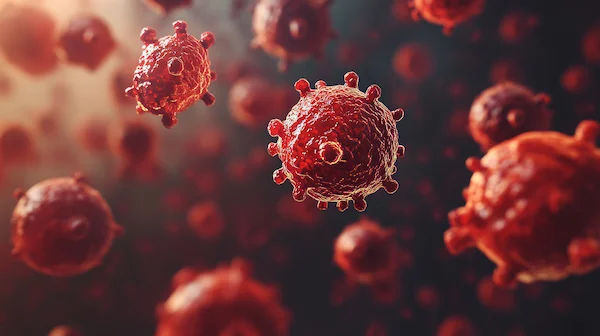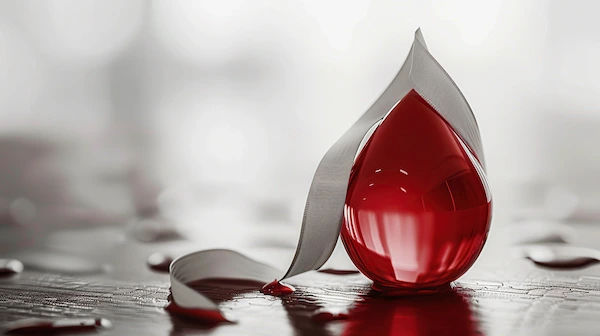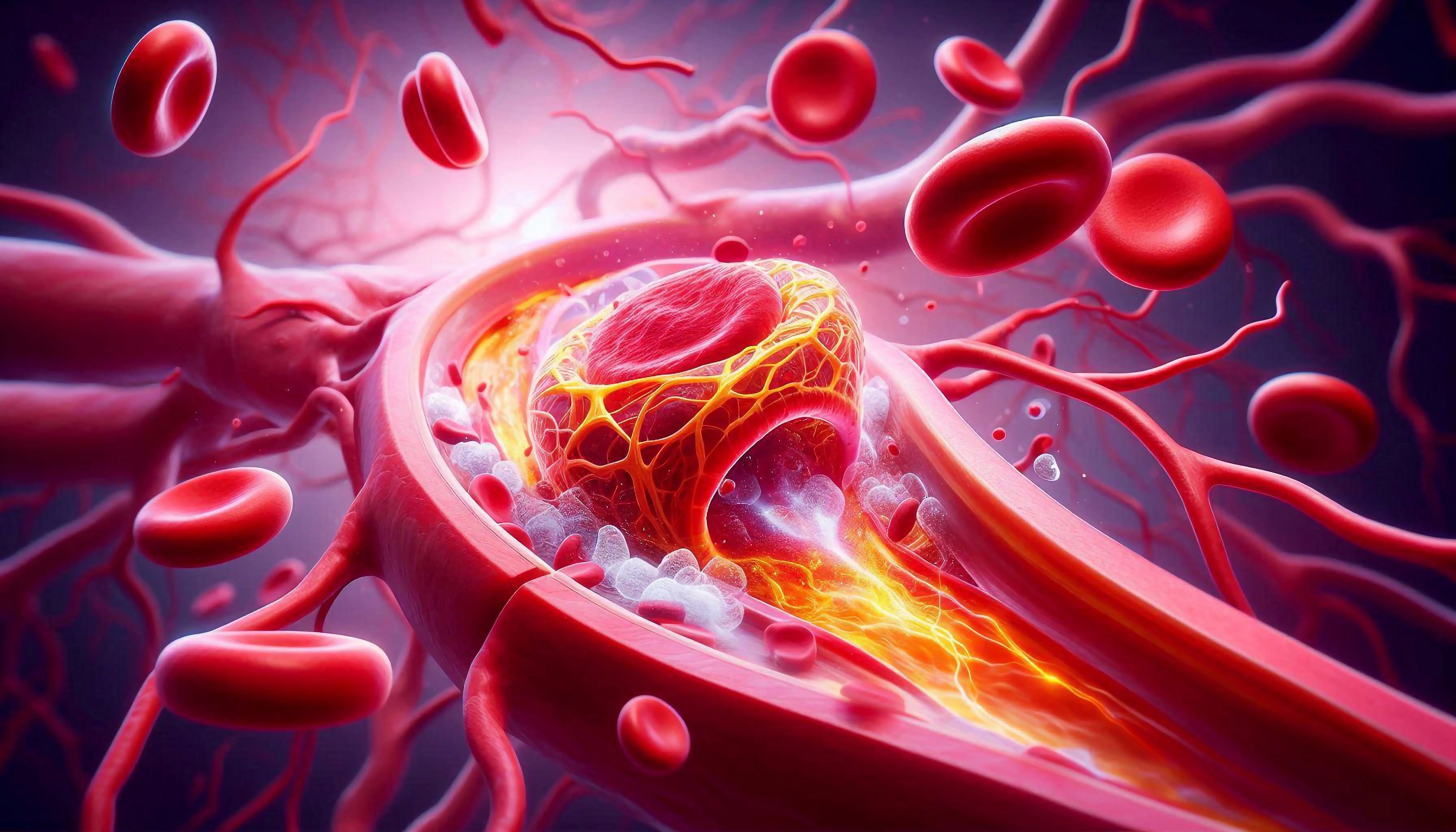Blood Cancer Overview and Treatment Options
Understand blood cancer, its types, symptoms, and causes. Explore available treatment options and the importance of early diagnosis for better outcomes.


Introduction
Blood cancer is a serious condition that affects thousands of people every year. If you or a loved one has been diagnosed with blood cancer, it’s natural to feel overwhelmed. However, understanding the disease, its symptoms, causes, and treatment options can help you manage it better.
This article will provide you with a simple yet comprehensive guide to blood cancer, along with ways to cope with it and the latest treatment options available.
What Is Blood Cancer?
Blood cancer occurs when abnormal blood cells grow uncontrollably, interfering with the normal function of blood cells. These abnormal cells can crowd out healthy blood cells, making it harder for your body to fight infections, control bleeding, or transport oxygen.
There are three main types of blood cancer:
1. Leukaemia – Affects white blood cells and bone marrow.
2. Lymphoma – Affects the lymphatic system (lymph nodes and immune system).
3. Myeloma – Affects plasma cells in the bone marrow.
Each type has different symptoms and treatment approaches, but early detection can improve outcomes.
Consult a Haemato Oncologist for the best advice
Common Symptoms of Blood Cancer
Blood cancer symptoms can vary depending on the type and stage, but some common signs include:
- Fatigue and weakness (due to low red blood cells)
- Frequent infections (due to weakened immunity)
- Unexplained weight loss
- Easy bruising or bleeding (nosebleeds, bleeding gums)
- Swollen lymph nodes (especially in the neck, armpits, or groin)
- Bone pain or tenderness
- Night sweats]
- Shortness of breath
If you experience any of these symptoms persistently, consult a doctor for further evaluation.
What Causes Blood Cancer?
The exact cause of blood cancer is not always clear, but certain factors may increase the risk:
- Genetic mutations (changes in DNA that cause abnormal cell growth)
- Family history of blood cancer
- Exposure to radiation or certain chemicals (like benzene)
- Previous chemotherapy or radiation therapy
- Weakened immune system (due to HIV/AIDS or immunosuppressive drugs)
- Age (some blood cancers are more common in older adults)
While some risk factors can’t be controlled, maintaining a healthy lifestyle may help reduce risks.
How Is Blood Cancer Diagnosed?
If your doctor suspects blood cancer, they may recommend:
1. Blood Tests – To check for abnormal cell counts.
2. Bone Marrow Biopsy – A small sample of bone marrow is taken to examine cancer cells.
3. Imaging Tests (X-rays, CT, PET scans) – To detect tumors or swollen lymph nodes.
4. Lymph Node Biopsy – If lymphoma is suspected.
Early diagnosis helps in planning the best treatment approach.
Get Your Health Assessed
Treatment Options for Blood Cancer
Treatment depends on the type of blood cancer, its stage, and the patient’s overall health. Common treatments include:
1. Chemotherapy
- Uses strong drugs to kill cancer cells.
- Can be given orally or through IV.
2. Radiation Therapy
- Uses high-energy rays to destroy cancer cells.
- Often used for lymphoma or to relieve bone pain.
3. Immunotherapy
- Boosts the immune system to fight cancer.
- Includes CAR-T cell therapy (a breakthrough for some blood cancers).
4. Targeted Therapy
- Uses drugs that specifically attack cancer cells without harming healthy ones.
5. Stem Cell Transplant (Bone Marrow Transplant)
- Replaces diseased bone marrow with healthy stem cells.
- Can be from a donor (allogeneic) or the patient’s own cells (autologous).
6. Supportive Care
- Blood transfusions, antibiotics, and pain management to ease symptoms.
Your doctor will recommend the best treatment plan based on your condition.
Lifestyle Tips for Managing Blood Cancer
While medical treatment is essential, certain lifestyle changes can help improve quality of life:
- Eat a Balanced Diet – Include proteins, fruits, and vegetables to boost immunity.
- Stay Hydrated – Helps flush out toxins from treatment.
- Exercise Gently – Light walking or yoga can reduce fatigue.
- Avoid Infections – Wash hands frequently and avoid crowded places.
- Get Emotional Support – Counselling or support groups can help cope with stress.
When to See a Doctor?
If you notice persistent symptoms like extreme fatigue, unexplained weight loss, or frequent infections, consult a haematologist (blood specialist) immediately. Early diagnosis improves treatment success.
Final Thoughts
Blood cancer can be challenging, but advances in medicine have improved survival rates significantly. With the right treatment and support, many patients lead fulfilling lives. Stay informed, follow your doctor’s advice, and take care of your overall health.
If you have concerns about blood cancer, don’t hesitate to reach out to a healthcare professional. Early action can make a big difference!
Consult a Haemato Oncologist for the best advice
Consult a Haemato Oncologist for the best advice

Dr Minakshi Bansal
Paediatric Haematologist
8 Years • MBBS, MD PEDIATRICS, FIAP (PHO)
Delhi
Apollo Hospitals Indraprastha, Delhi
(25+ Patients)
Dr Jayachandran P K
Haemato Oncologist
12 Years • M.D. (Int Med), M.R.C.P. (UK), D.M. (Medical Oncology), M.R.C.P. (Med Onc), ECMO, Fellow in Cellular (CAR-T) and Stem Cell Transplantation (Cambridge University, UK), F.R.C.P. (Glasg).
Chennai
Apollo Speciality Hospitals, Teynampet, Chennai
Dr. Satya Prasad
Haemato Oncologist
5 Years • MBBS,DNB(General Medicine) ,DM(Clinical Hematology/Hemato-Oncology)
Chennai
Apollo First Med Hospitals P H Road, Chennai

Dr. Prashant Chandra Das
Surgical Oncologist
15 Years • MBBS (MKCG Medical college) MCh (Surgical Oncology, Kidwai memorial institute of Oncology, Bangalore) MS (General Surgery, BHU Varanasi) Fellowship in Minimal Access Surgery ( FMAS). ESSO Course On Minimally Invasive Esophagectomy & Gastrectomy (UMC, Utrecht, Netherlands). Trained in Robotic and Laparoscopic Cancer Surgery.
Bhubaneswar
Apollo Hospitals Old Sainik School Road, Bhubaneswar
(25+ Patients)

Dr. Shishir Seth
Haemato Oncologist
20 Years • MBBS, MD, DM (Clinical Hematology)
Delhi
Apollo Hospitals Indraprastha, Delhi
(75+ Patients)
Consult a Haemato Oncologist for the best advice

Dr Minakshi Bansal
Paediatric Haematologist
8 Years • MBBS, MD PEDIATRICS, FIAP (PHO)
Delhi
Apollo Hospitals Indraprastha, Delhi
(25+ Patients)
Dr Jayachandran P K
Haemato Oncologist
12 Years • M.D. (Int Med), M.R.C.P. (UK), D.M. (Medical Oncology), M.R.C.P. (Med Onc), ECMO, Fellow in Cellular (CAR-T) and Stem Cell Transplantation (Cambridge University, UK), F.R.C.P. (Glasg).
Chennai
Apollo Speciality Hospitals, Teynampet, Chennai
Dr. Satya Prasad
Haemato Oncologist
5 Years • MBBS,DNB(General Medicine) ,DM(Clinical Hematology/Hemato-Oncology)
Chennai
Apollo First Med Hospitals P H Road, Chennai

Dr. Prashant Chandra Das
Surgical Oncologist
15 Years • MBBS (MKCG Medical college) MCh (Surgical Oncology, Kidwai memorial institute of Oncology, Bangalore) MS (General Surgery, BHU Varanasi) Fellowship in Minimal Access Surgery ( FMAS). ESSO Course On Minimally Invasive Esophagectomy & Gastrectomy (UMC, Utrecht, Netherlands). Trained in Robotic and Laparoscopic Cancer Surgery.
Bhubaneswar
Apollo Hospitals Old Sainik School Road, Bhubaneswar
(25+ Patients)

Dr. Shishir Seth
Haemato Oncologist
20 Years • MBBS, MD, DM (Clinical Hematology)
Delhi
Apollo Hospitals Indraprastha, Delhi
(75+ Patients)


.webp)


